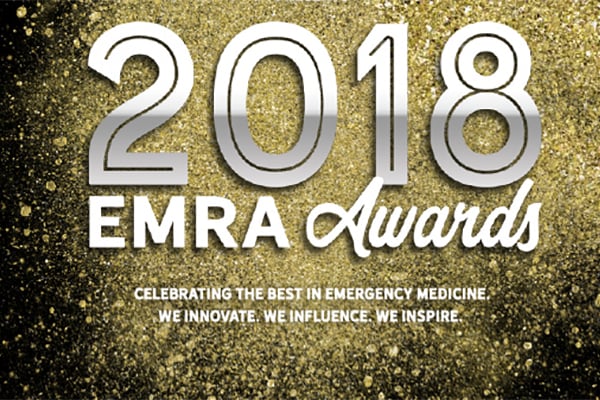DACA Health Professions Letter December 2017
December 13, 2017
The Honorable Mitch McConnell
Majority Leader
United States Senate
Washington, DC 20510
The Honorable Chuck Schumer
Minority Leader
United States Senate
Washington, DC 20510
The Honorable Paul Ryan
Speaker
United States House of Representatives
Washington, DC 20515
The Honorable Nancy Pelosi
Minority Leader
United States House of Representatives
Washington, DC 20515
Dear Majority Leader McConnell, Speaker Ryan, Minority Leader Schumer, and Minority Leader Pelosi:
On behalf of the undersigned health professions organizations, we urge you to ensure that all members of the health care workforce with Deferred Action for Childhood Arrivals (DACA) status are able to continue their employment, education, training, and research, with passage of a permanent legislative remedy as soon as possible. By providing a legal pathway to permanent residency for undocumented Americans brought to the U.S. as children, Congress can help our country produce a diverse and culturally responsive health care workforce to meet the needs of underserved populations, promote health equity, and avoid unnecessary disruption in our education and training systems.
While current DACA recipients will not lose their status until March 5, 2018, health professions students with DACA status and the institutions that train them need a definitive remedy as they enter the next stage of their education and career. For example, on September 6, 2017 — a day after the administration’s decision to rescind the DACA executive action — medical students with DACA began submitting applications to residency programs to complete their training. Teaching hospitals and medical schools are currently interviewing these applicants, and in January both will submit their rank order lists for the National Residency Matching Program or “Match.” This process involves a significant investment by all parties involved and is a critically important part of U.S. academic medicine.
With the nation’s population growing and becoming increasingly diverse, it is crucial that the health professions workforce respond to the changing demographics of the country to mitigate racial, ethnic, and socioeconomic health disparities. Research demonstrates that diversity in the health professions leads to improvements in access to care for underserved communities, and some studies have shown that patients report greater satisfaction with clinical care when they are treated by providers from the same racial/ethnic background. Diverse health professions school classes also enhance the ability of the entire workforce to provide culturally competent care to individuals regardless of their background.
Health professions students with DACA status encompass a diverse, multiethnic population, who are often bilingual and more likely to practice in underserved communities. Legislation granting lawful presence in the U.S. and work authorization to the narrow cohort of undocumented students that meet DACA criteria would enhance our health care workforce and restore certainty to health professions schools and residency training programs.
Our organizations are dedicated to promoting a culturally competent, diverse, and prepared health and biomedical workforce that leads to improved care and health equity. A permanent legislative remedy would help us achieve this goal. We urge congressional leadership to advance legislation as soon as possible to ensure health professionals participating in DACA are able to continue their employment, education, training, and research.
Sincerely,
Alliance for Academic Internal Medicine
American Academy of Dermatology Association
American Academy of Family Physicians
American Academy of Hospice and Palliative Medicine
American Association of Anatomists
American Association of Colleges of Nursing
American Association of Colleges of Pharmacy
American Association of Colleges of Podiatric Medicine
American Association of Colleges of Osteopathic Medicine
American Association of Directors of Psychiatric Residency Training
American Board of Medical Specialties
American College of Physicians
American College of Obstetricians and Gynecologists
American Geriatrics Society
American Medical Association
American Medical Student Association
American Nurses Association
American Organization of Nurse Executives
American Physiological Society
American Psychiatric Association
American Psychological Association
American Society for Clinical Laboratory Science
Asian Pacific American Medical Student Association
Association for Prevention Teaching and Research
Association of Academic Health Sciences Libraries
Association of American Medical Colleges
Association of American Veterinary Medical Colleges
Association of Anatomy Cell Biology and Neurobiology Chairs
Association of Bioethics Program Directors
Association of Chairs of Departments of Physiology
Association of Family Medicine Residency Directors
Association of Nurses in AIDS Care
Association of Schools and Colleges of Optometry
Association of Schools and Programs of Public Health
Association of Schools of Allied Health Professions
Association of University Anesthesiologists
Association of University Professors of Neurology
Association of University Anesthesiologists
Associations of Departments of Family Medicine
Council of Emergency Medicine Residency Directors
Council on Social Work Education
Emergency Medicine Residents’ Association
GLMA: Health Professionals Advancing LGBT Equality Heart Failure Society of America
HIV Medicine Association
Infectious Diseases Society of America
Institute of Healthcare Improvement
Latino Medical Student Association
National Association of Hispanic Nurses
National Council of Asian Pacific Islander Physicians
National Hispanic Medical Association
National Organization of Nurse Practitioner Faculties
North American Primary Care Research Group
Pre-Health Dreamers
Society of Academic Associations of Anesthesiology and Perioperative Medicine
Society of Emergency Medicine Physician Assistants
Society of General Internal Medicine
Society of Surgical Chairs
Society of Teachers of Family Medicine
The Addiction Medicine Foundation
The Association of Psychologists in Academic Health Centers
Related Content







